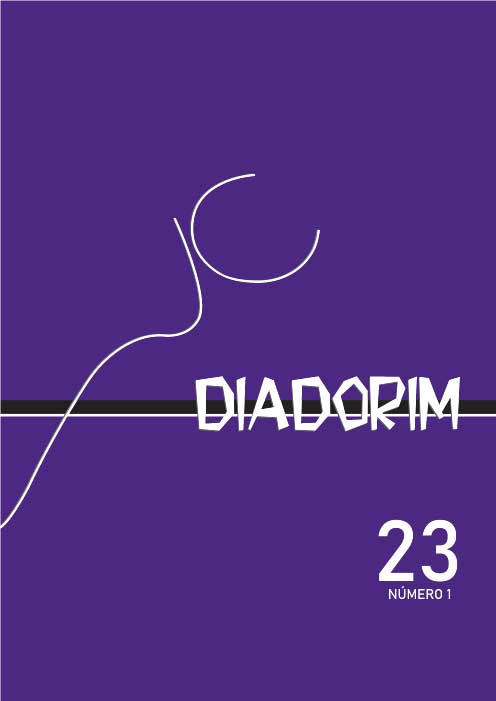LINGUISTIC VARIETIES IN BRAZIL AND BEYOND
DOI:
https://doi.org/10.35520/diadorim.2021.v23n1a44441Palavras-chave:
Language and SocietyResumo
The thematic dossier “Linguistic varieties in Brazil and beyond”, from the first issue of volume 23, is organized by professors Katie Drager (University of Hawai‘i-Mānoa), Albert Olivier Blaise Rilliard (CNRS, UFRJ), Marcia dos Santos Machado Vieira (UFRJ) and Marcos Luiz Wiedemer (UERJ/Faperj) in an attempt to bring together investigations and theoretical-methodological referrals of studies on language varieties and social dimensions. Together, the articles in this dossier describe the ways in which social factors, social contexts, identity construction, and discursive goals and practices play an important role in the production, processing, evaluation and perception of variants. The starting point for the theme was to configure a panorama of research in the areas of Sociolinguistics and Geolinguistics
Further, the dossier includes work that considers the application of variation: (i) the typological observation arising from the comparison between experiences and resources of certain languages for the expression of a state of affairs (movement) in translation studies (the contrast between originals and versions in different languages), (ii) the multilingual conception of grammatical knowledge in the field of contact between communities and the modeling of this knowledge using a usage-based Construction Grammar approach (in which form and function pairings are conventionalized through the experience of use and can be entrenched in cognitive representation), as well as (iii) the treatment of the Portuguese language and discursive routines linked to the activation of Portuguese resources for teaching and translation, in spaces where it is not the mother language.Downloads
Downloads
Publicado
Edição
Seção
Licença
Transferência de direitos autorais - Autorização para publicação
Caso o artigo submetido seja aprovado para publicação, já fica acordado que o autor autoriza a UFRJ a reproduzi-lo e publicá-lo na Diadorim: Revista de Estudos Linguísticos e Literários, entendendo-se os termos "reprodução" e "publicação" conforme definição respectivamente dos incisos VI e I do artigo 5° da Lei 9610/98. O artigo poderá ser acessado pela internet, a título gratuito, para consulta e reprodução de exemplar do artigo para uso próprio de quem a consulta. Essa autorização de publicação não tem limitação de tempo, ficando a UFRJ responsável pela manutenção da identificação do autor do artigo.

A Revista Diadorim utiliza uma Licença Creative Commons Atribuição-NãoComercial 4.0 Internacional (CC BY-NC 4.0).

